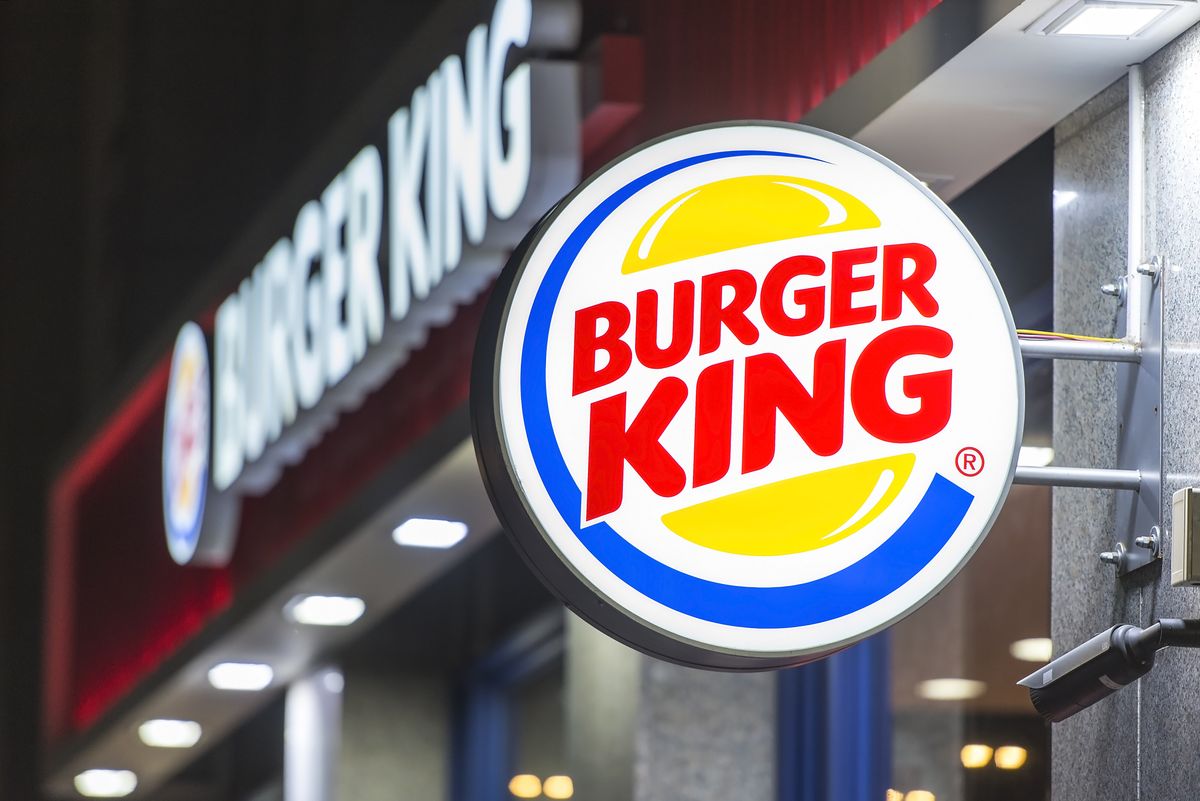Recognized worldwide for its iconic Whopper burger, Burger King stands as one of the leading fast-food hamburger chains globally. While fast food offers convenience and caters to diverse food preferences, it often comes at the expense of your health. While a single fast-food meal might not lead to significant health issues, frequent visits to the drive-thru can have a detrimental impact on your well-being. Even if you're not prioritizing healthy eating when visiting Burger King, the ingredients and nutritional facts of their popular menu items may astonish you.
Fast food lives up to its name by prioritizing speed over nutrition. Yet, it's essential to reconsider your choices when confronted with meals packed with sodium, sugar, and saturated fat. Research has revealed the detrimental effects of highly processed food on the body. In one study, participants consuming an ultra-processed diet consumed an average of 500 additional calories per day compared to those following a minimally processed diet. Consequently, the ultra-processed group experienced weight gain, while the less processed group lost weight. Fortunately, increasing awareness about nutrition and its impact on health has led many restaurants to expand their healthier offerings. However, Burger King has yet to take significant steps in this direction. You won't find any salads or grilled chicken options on their menu, making portion control your best bet for a healthier choice. If you're aiming for a better option at Burger King, it's wise to avoid calorie-laden side dishes that can easily add 300 extra calories to your meal and opt for drinks without added sugar. When in doubt, steer clear of the following ten worst Burger King orders.
1) Double Sausage, Egg & Cheese Biscuit
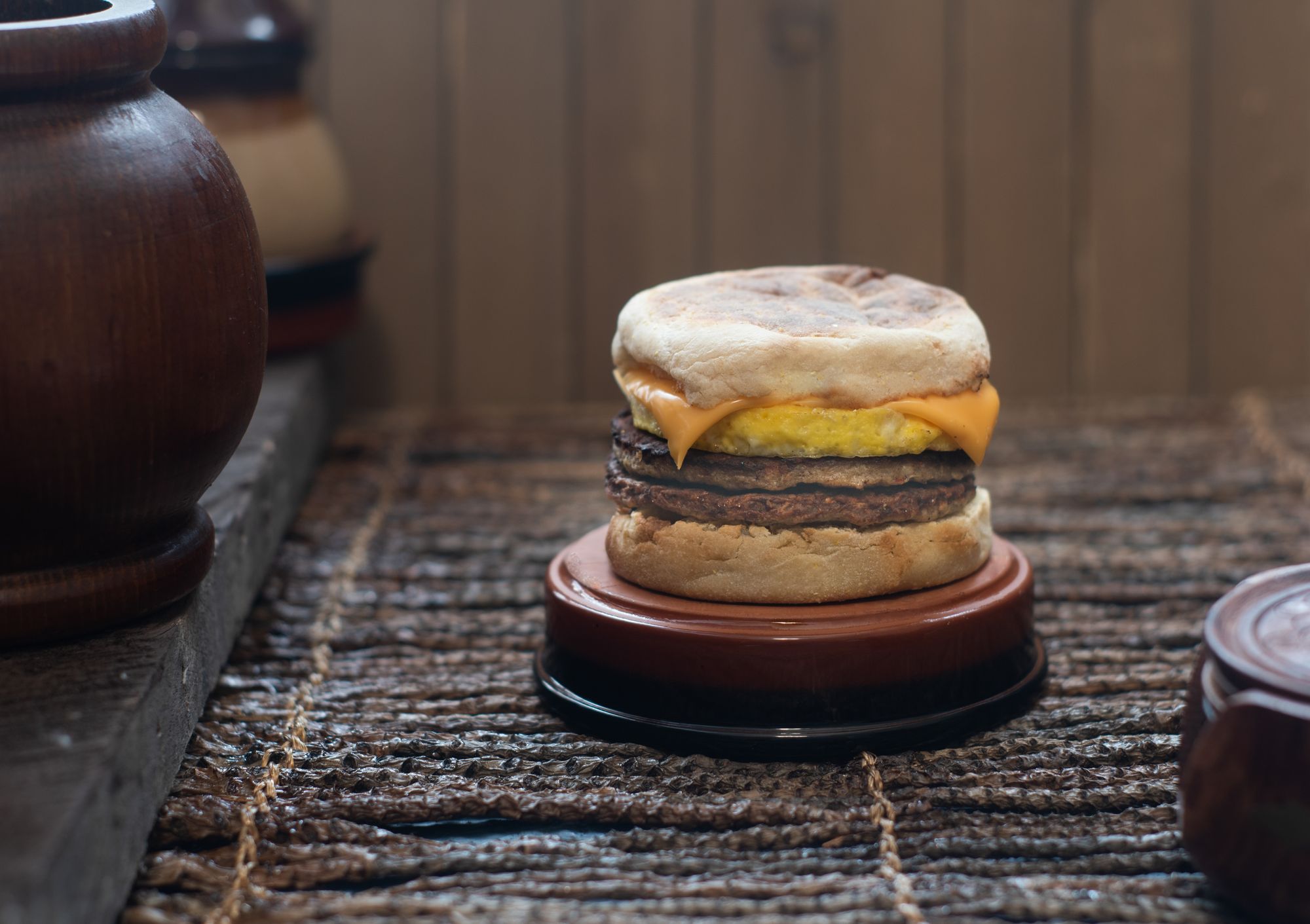
Let's start with breakfast, where Burger King offers choices like the Double Sausage, Egg & Cheese Biscuit. This morning option is a combination of two sausage patties, two slices of cheese, an egg, and a buttery biscuit. However, it's loaded with 852 calories, 65 grams of fat (including 29 grams of saturated fat), and a staggering 2,522 milligrams of sodium. The sodium content alone exceeds the recommended daily intake. Opting for the regular Sausage, Egg, & Cheese Biscuit can save you several hundred milligrams of sodium.
2) Egg-Normous Burrito
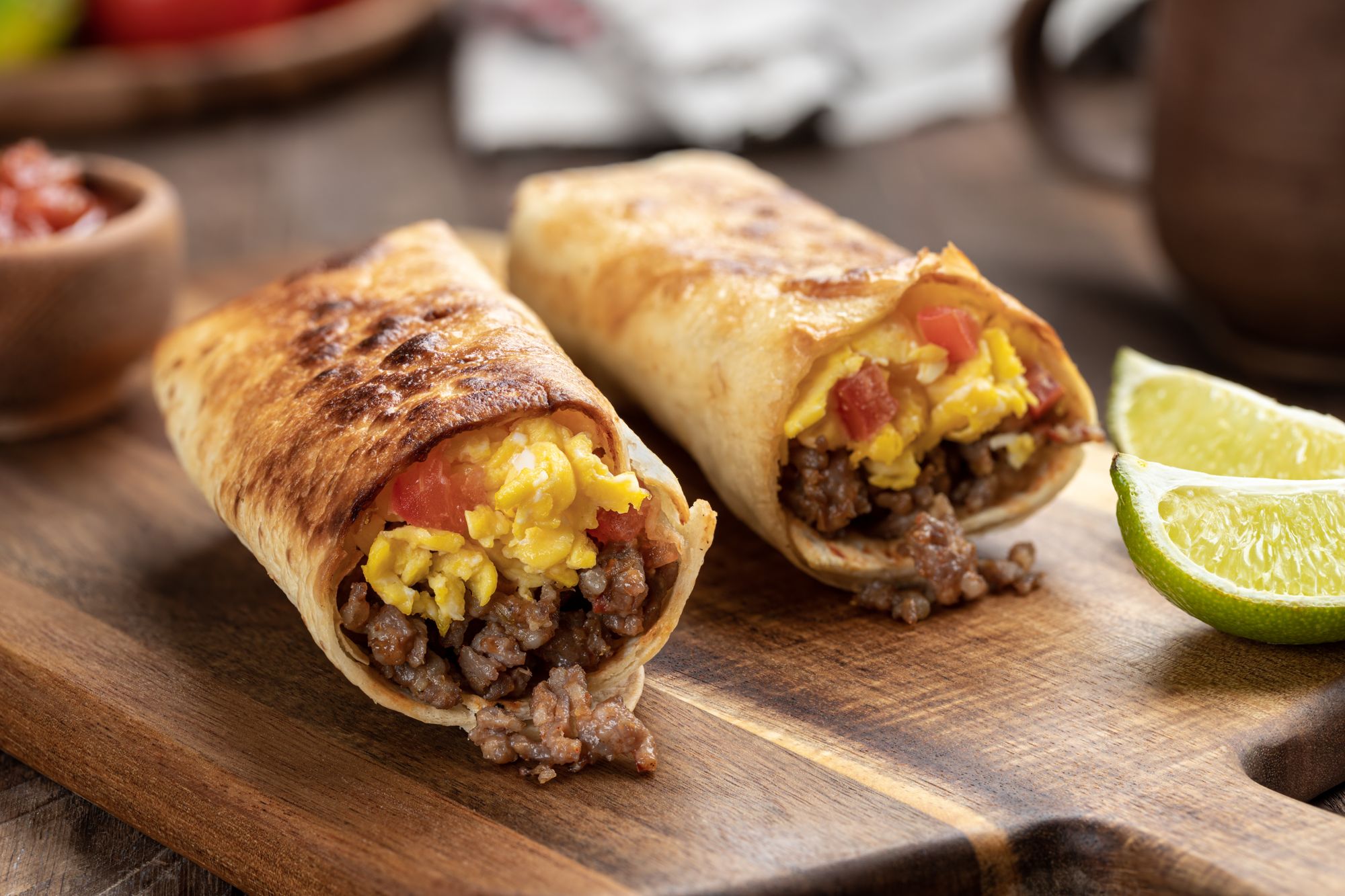
Another concerning breakfast item is the Egg-Normous Burrito, which packs bacon, egg, cheese, and fried hash browns into a flour tortilla. With a calorie count of 805 and 2,039 milligrams of sodium, this breakfast burrito stands as one of the most calorie-dense options on the Burger King breakfast menu. Additionally, it lacks adequate fiber, an important nutrient for a well-rounded meal. Considering homemade options like whole grain bread, oatmeal, or a fruit smoothie can provide a healthier, fiber-rich breakfast.
3) Triple Whopper
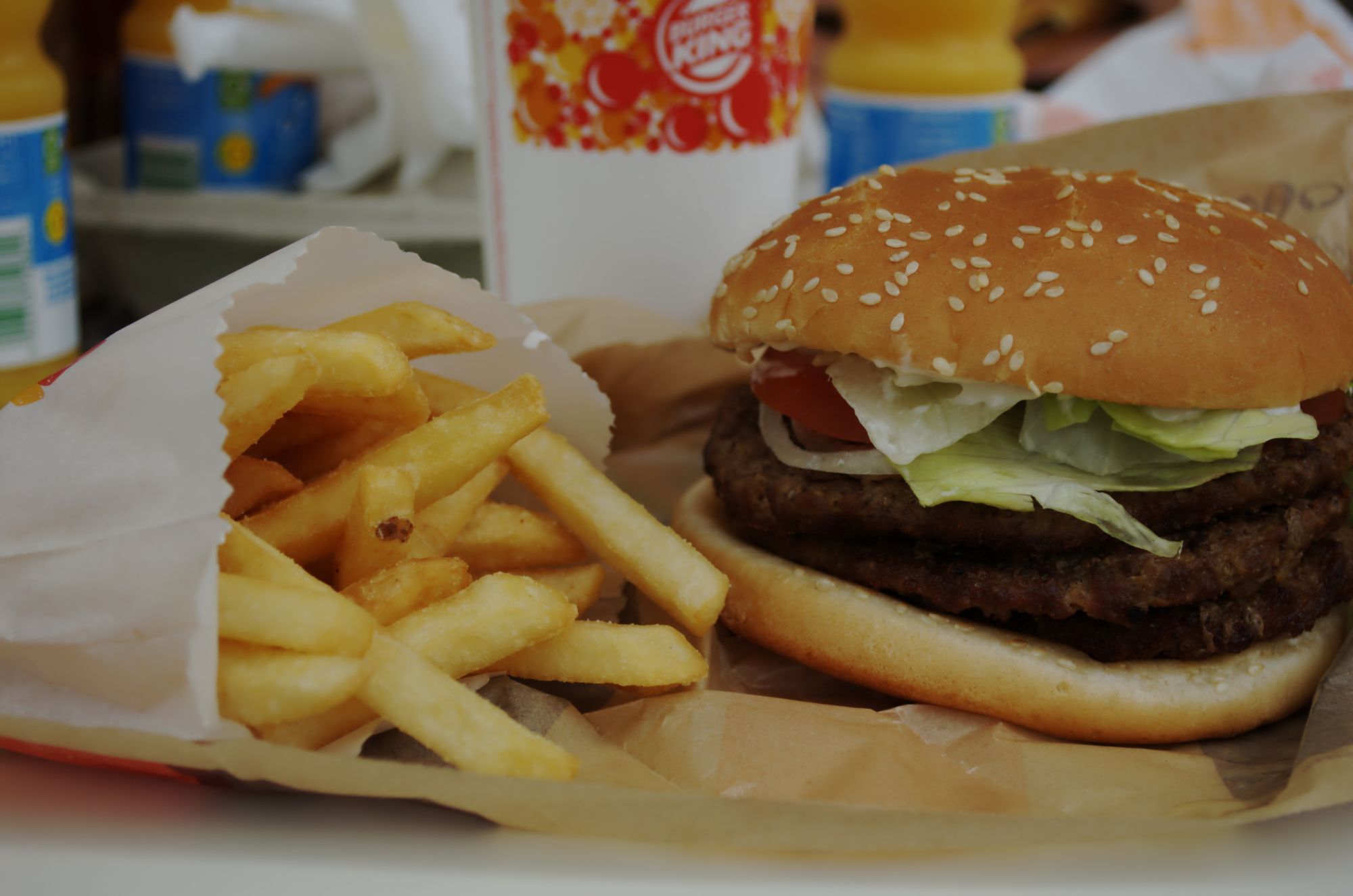
Moving on to burgers, the Triple Whopper might seem appealing due to its high protein content. However, its nutritional breakdown raises concerns. With a staggering 1,170 calories, 80 grams of fat (including 27 grams of saturated fat), and 1,300 milligrams of sodium, this Burger King order does not align with heart health goals. Limiting saturated fat intake is crucial for reducing the risk of heart attack and stroke. Opting for a single-patty Whopper decreases saturated fat intake by 15 grams, making it a better choice.
4) Bacon King
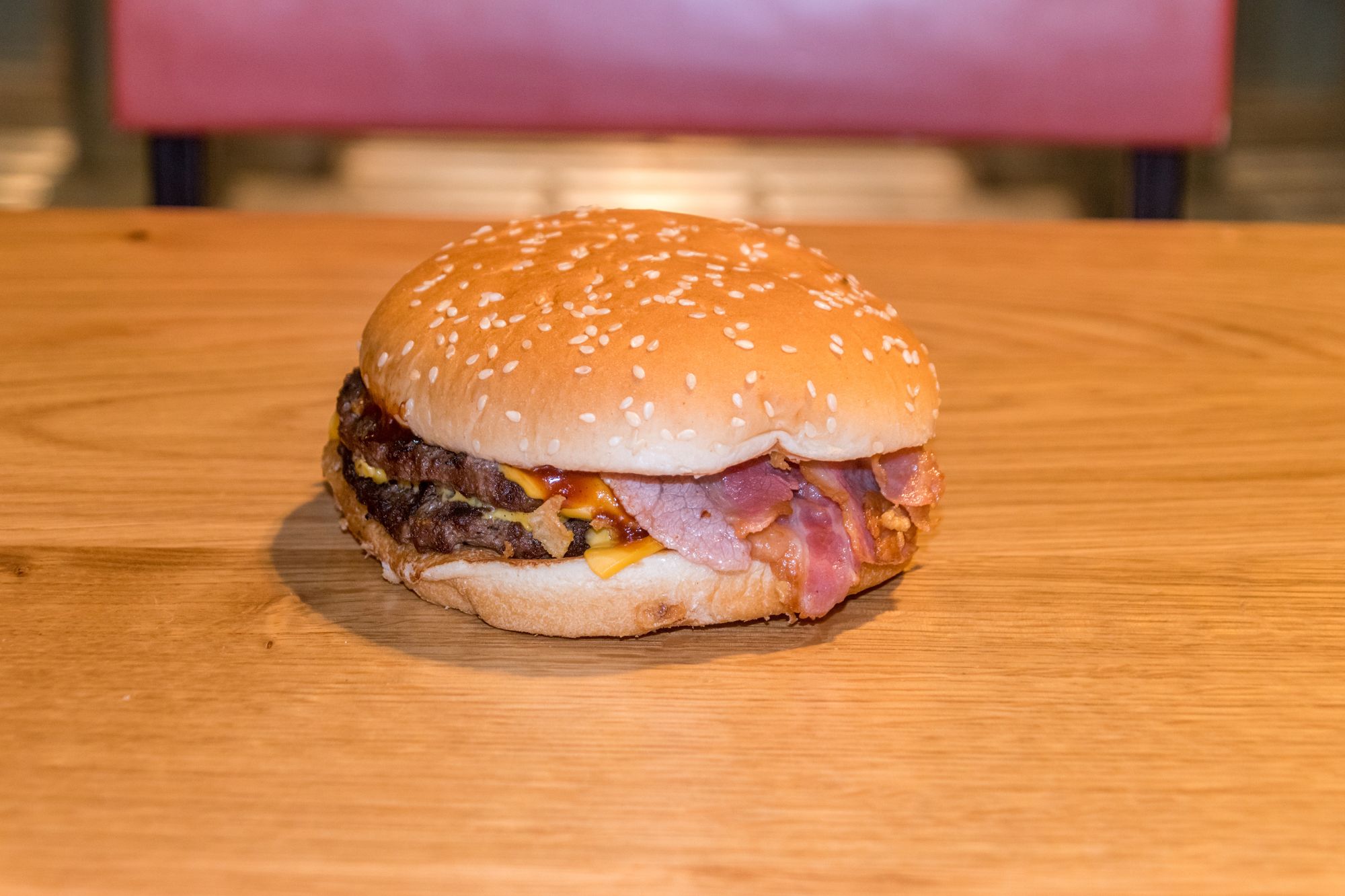
Taking unhealthy indulgence to another level, the Bacon King boasts 1,200 calories, 81 grams of fat (including 32 grams of saturated fat), and 2,270 milligrams of sodium. With over 30 grams of saturated fat, this burger surpasses the Triple Whopper in terms of heart health concerns. It's important to note that very few individuals require over 1,000 calories in a single meal.
5) Texas Double Whopper
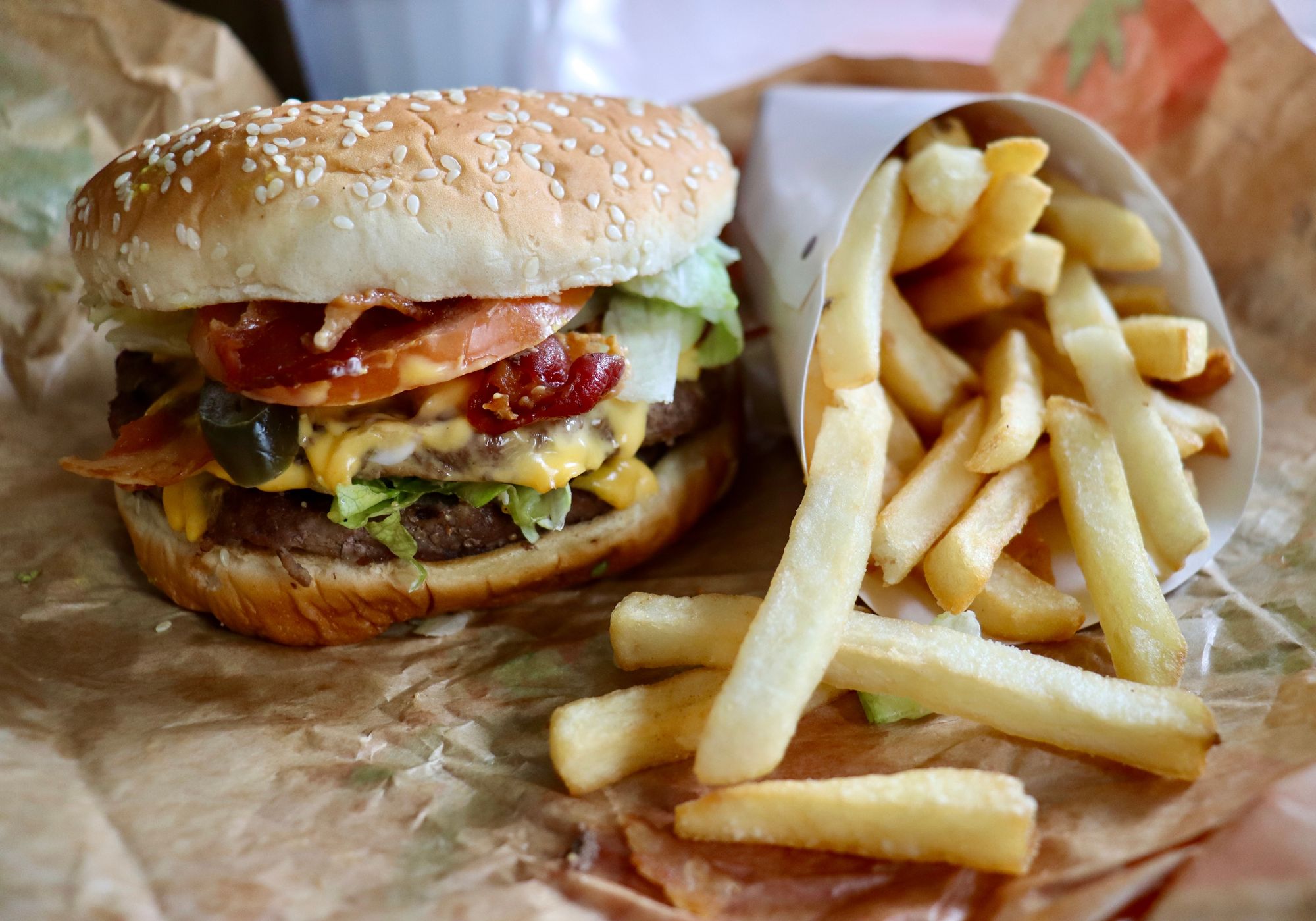
The Texas Double Whopper aligns with the famous Texan motto "bigger is better" as it delivers 1,090 calories, 75 grams of fat (including 25 grams of saturated fat), and 2,050 milligrams of sodium. Packed with two beef patties, bacon, and American cheese, this burger presents a combination of high total fat, saturated fat, and sodium, which is less than ideal for maintaining heart health.
6) Spicy BK Royal Crispy Chicken

While chicken options are often considered healthier alternatives, not all choices at Burger King meet those expectations. The Spicy BK Royal Crispy Chicken sandwich, though lower in saturated fat compared to some burger options, still packs nearly 50 grams of total fat and close to 1,600 milligrams of sodium. If opting for chicken, the 9-piece order of Chicken Fries with 15 grams of fat and significantly less sodium is a better choice.
7) Bacon and Swiss BK Royal Crispy Chicken
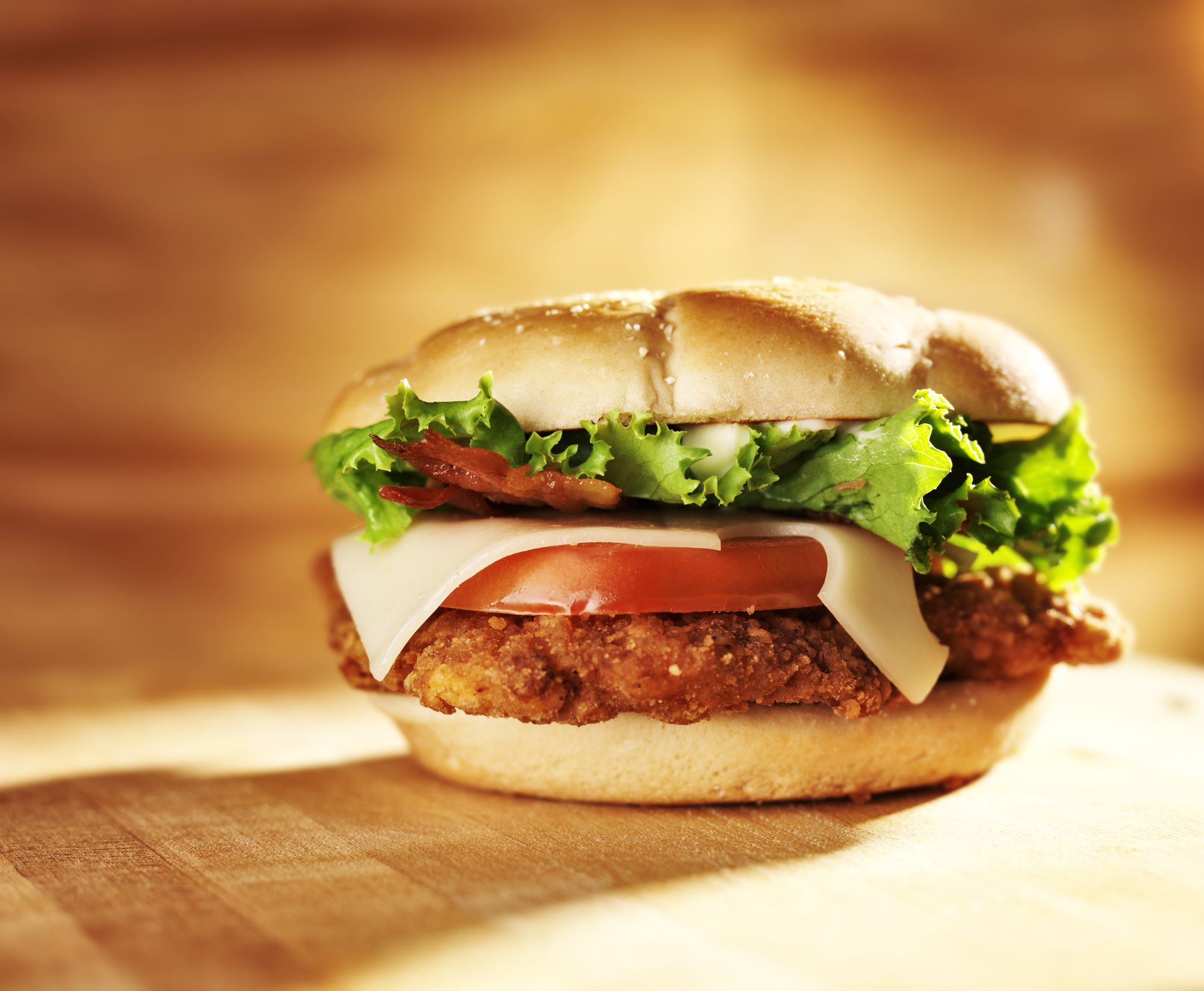
Similarly, the Bacon and Swiss BK Royal Crispy Chicken sandwich surprises with its calorie and fat content. With bacon, cheese, and royal sauce, it adds unnecessary calories without providing substantial nutritional value. This sandwich highlights the importance of simplicity when seeking healthier options. A grilled chicken sandwich, when available, can be a healthier fast-food choice. Unfortunately, Burger King does not currently offer this option.
8) Chocolate Oreo® Cookie Shake
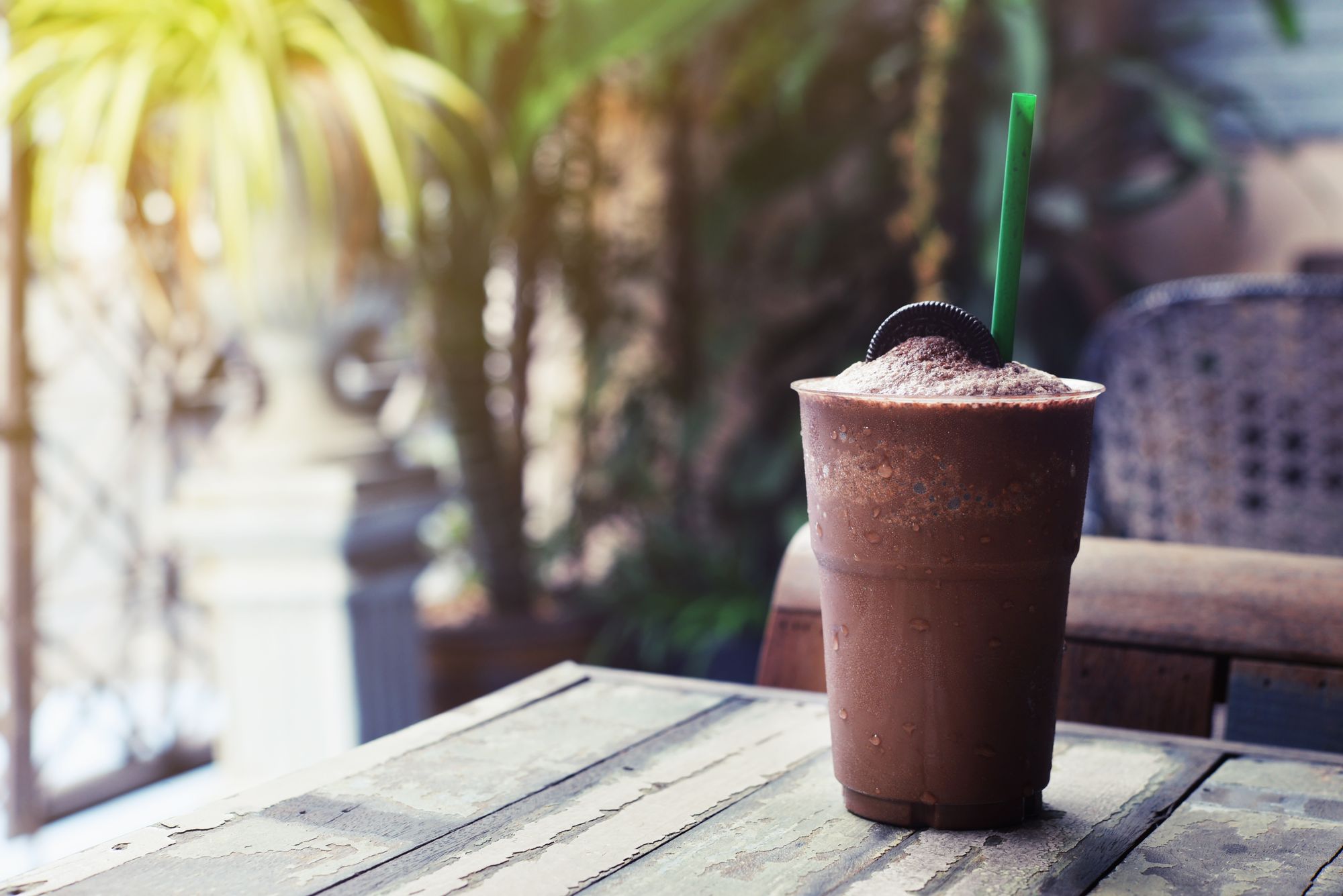
For those with a sweet tooth, the Chocolate Oreo Cookie Shake is a popular treat, but its nutritional profile should be cause for concern. With 674 calories and a staggering 91 grams of sugar, equivalent to approximately 2.5 cans of soda, this shake poses a significant risk in terms of added sugar consumption. Limiting added sugar is essential to reduce the risk of chronic diseases like diabetes. An alternative, such as a single soft-serve cone with only 16 grams of sugar, can be a wiser choice.
9) HERSHEY'S® Sundae Pie
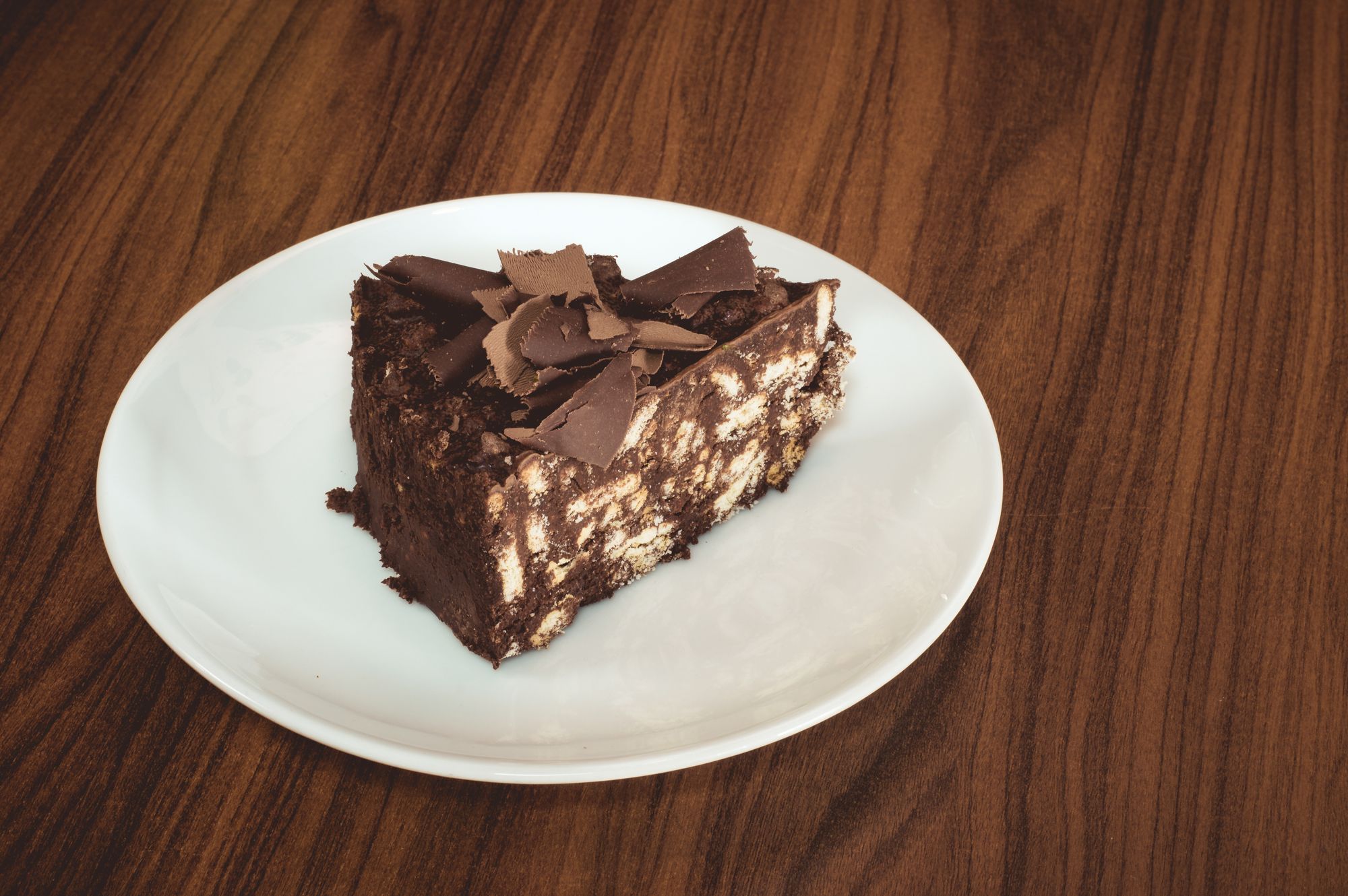
When it comes to desserts, the HERSHEY'S Sundae Pie, while lower in calories compared to the shake, contains more fat and saturated fat. Practicing portion control can make this dessert more reasonable, but opting for a soft-serve cup or cone is a healthier choice, as these treats mainly consist of empty calories.
10) Frozen Fanta® Blue Raspberry

Lastly, the Frozen Fanta Blue Raspberry drink represents one of the least nutritious items on the Burger King menu. With 66 grams of sugar and no significant nutritional value, this blended frozen drink contributes to an already unhealthy meal, especially when paired with high-calorie entrée options. Additionally, the drink contains food dyes and coloring, which have been associated with various concerns.

